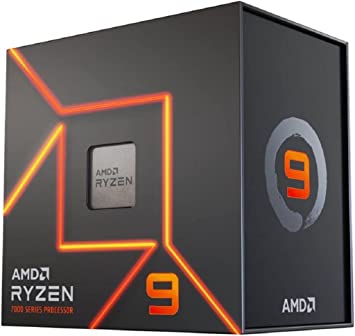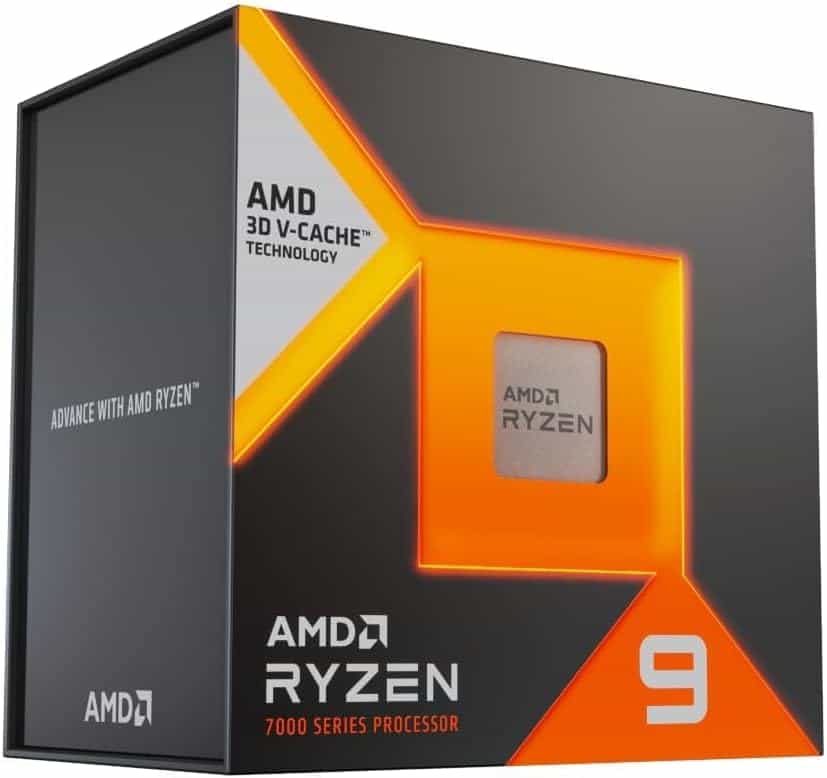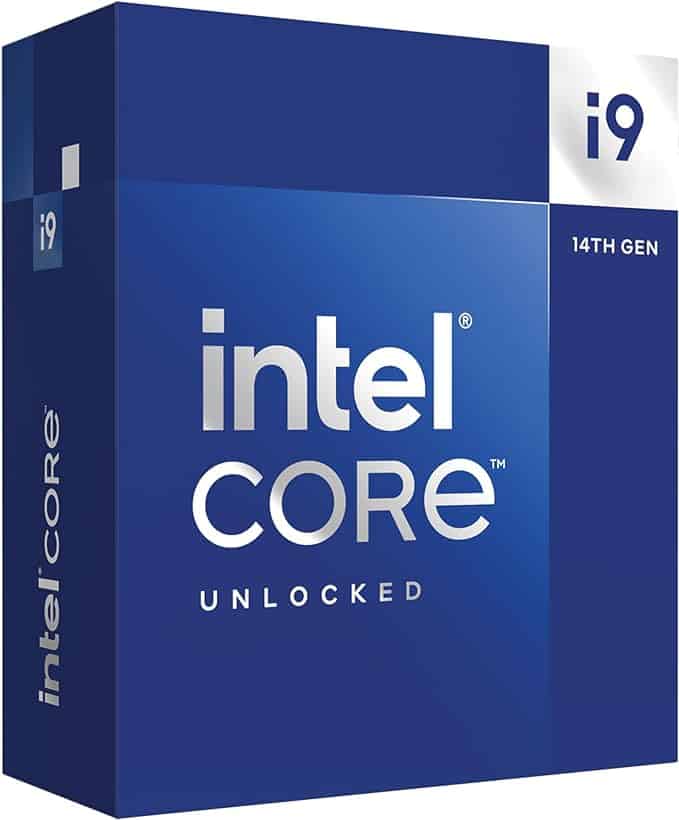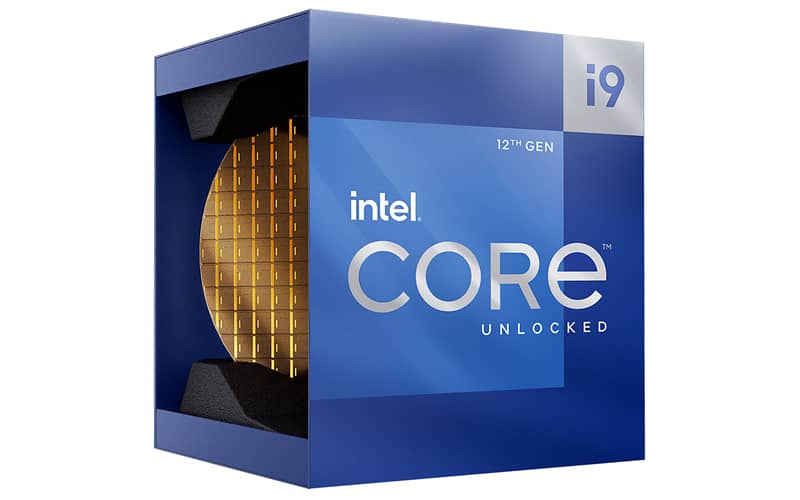Ryzen 9 9950X vs. Intel Core i9-13900K – new flagship against old flagship, who wins?
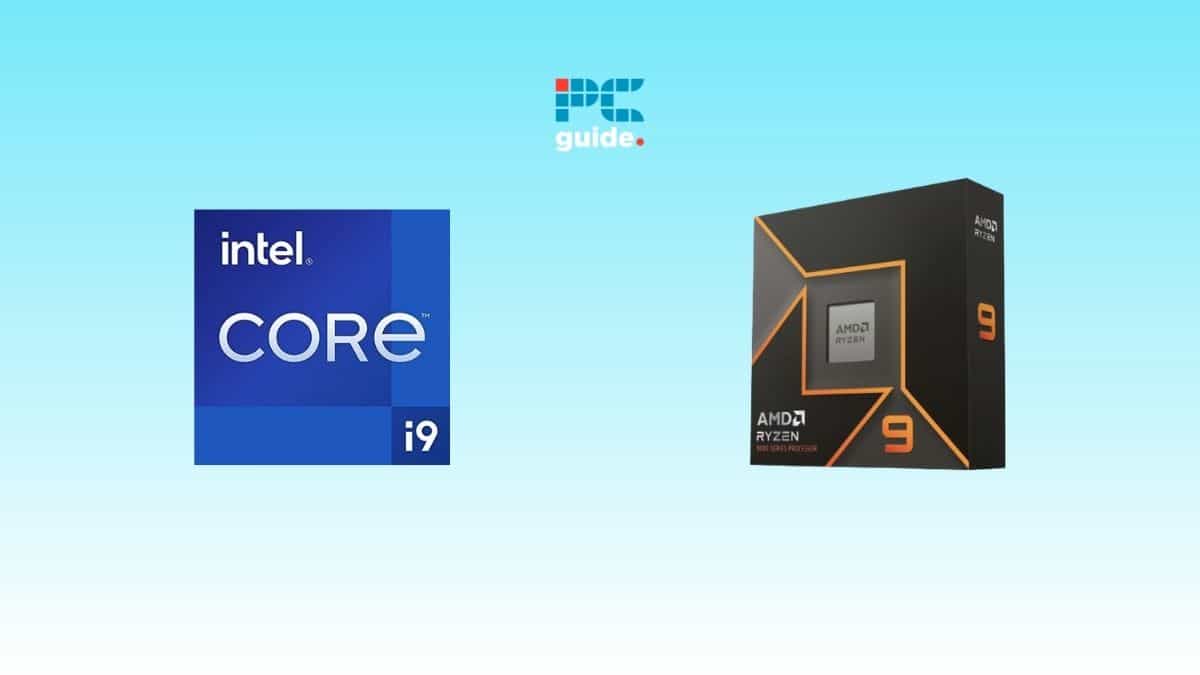
Table of Contents
AMD's upcoming Ryzen 9000 series was delayed because it didn't meet the quality expectations, and while we were expecting some backlash, the response from fans was surprisingly okay.
That said, early benchmark leaks showed the Ryzen 9 9950X beating the 7950X in multi-core performance, which speaks toward a performance increase courtesy of the Zen 5 architecture and the 16% IPC uplift it brings.
Prime Day may have closed its doors, but that hasn't stopped great deals from landing on the web's biggest online retailer. Here are all the best last chance savings from this year's Prime event.
- Sapphire Pulse AMD Radeon™ RX 9070 XT Was $779 Now $719
- AMD Ryzen 7 7800X3D Processor Was $449 Now $341
- Skytech King 95 Ryzen 7 9800X3D gaming PC Was $2,899 Now $2,599
- LG 77-Inch Class OLED C5 TV Was $3,696 Now $2,996
- AOC Laptop Computer 16GB RAM 512GB SSD Was $360.99 Now $306.84
- Lexar 2TB NM1090 w/HeatSink SSD Was $281.97 Now $214.98
- Apple Watch Series 10 GPS+ Smartwatch Was $499.99 Now $379.99
- AMD Ryzen 9 5950X processor Was $3199.99 Now $279.99
- Garmin vívoactive 5 Smartwatch Was $299.99 Now $190
*Prices and savings subject to change. Click through to get the current prices.
We're interested in how the i9-13900K would do against this behemoth and whether it'd be a close call or a one-sided victory. In this article, we'll explore their differences and see which one comes out on top.
Before we get started, if you're interested in keeping up to date about the launch of the Ryzen 9 9950X, we've got your back, and to help you beat the bots, we've listed all the popular retails in one place so you can quickly order a 9950X as soon as it hits the shelves.
AMD Ryzen 9 9950X
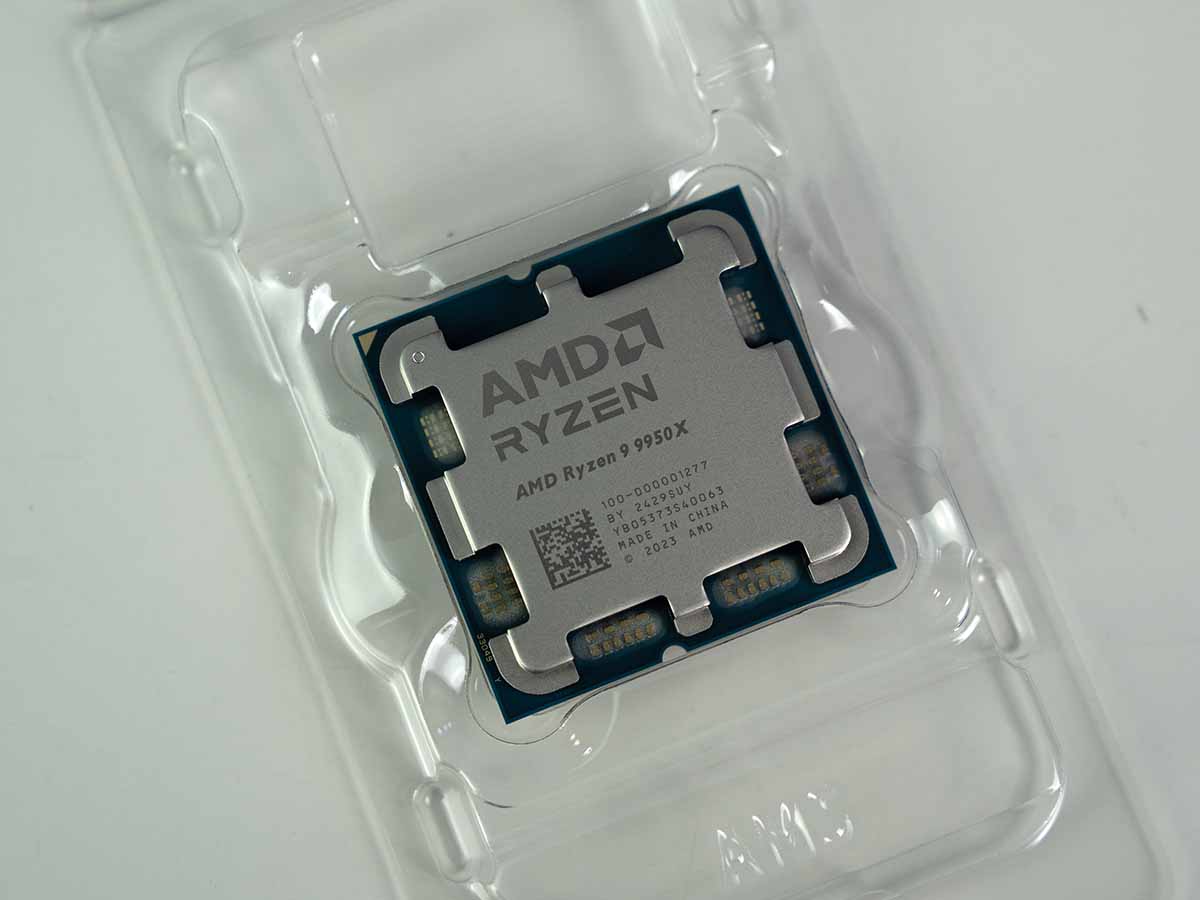
Cores
16
Threads
32
Boost clock speed
5.7 GHz
Base clock speed
4.3 GHz
L3 Cache
64 MB
TDP
170 W
Platform
AMD Socket AM5
Shop on Amazon
CHECK PRICEIntel Core i9-13900K
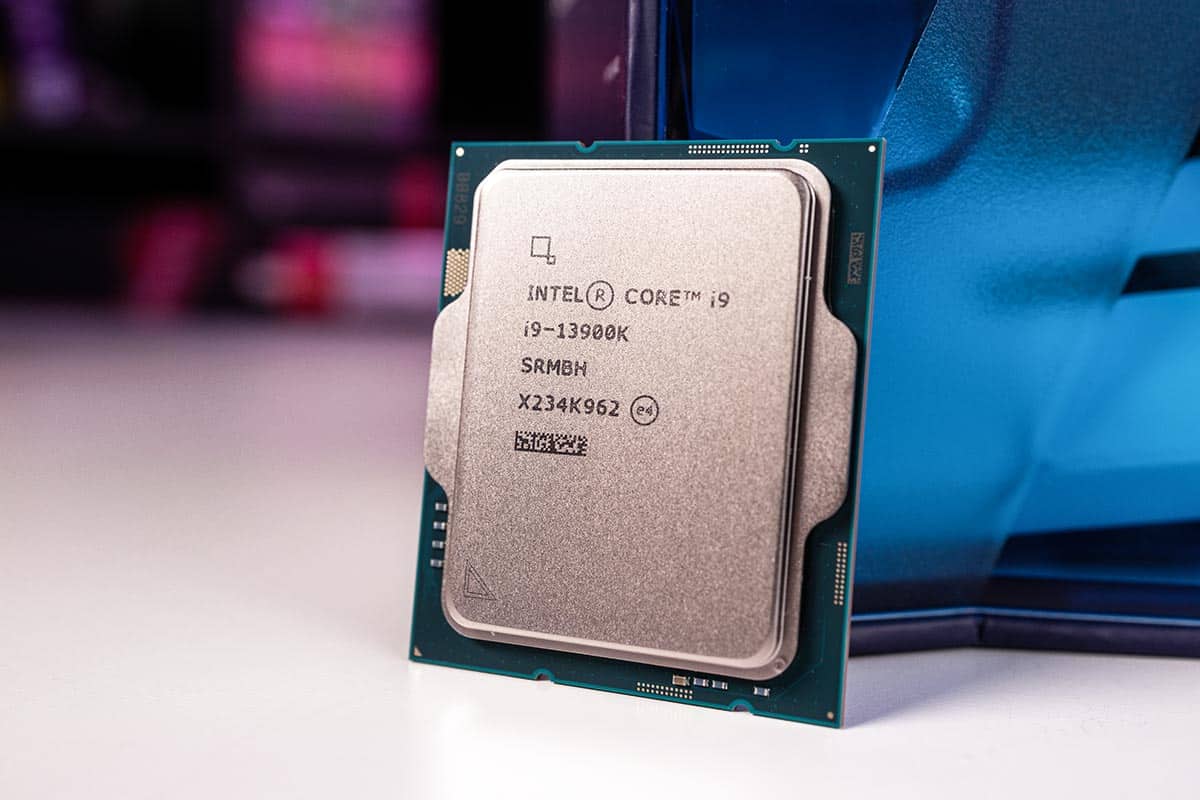
Cores
24 (8P-16E)
Threads
32
Boost speed
P-Core 5.8GHz / E-Core 4.3GHz
Base speed
P-Core 3.0GHz / E-Core 2.2GHz
L3 Cache
36 MB
TDP
253 W
Platform
Intel Socket 1700
Shop on Amazon
CHECK PRICESpecification
To see the hardware difference between the two processors, we've listed their specifications below.
| Specifications | Ryzen 9 9950X | Intel Core i9-13900K |
| Architecture | Zen 5 | Raptor Lake-R |
| Socket | AM5 | LGA1700 |
| Process | TSMC 4nm FinFET | Intel 7 (10nm) |
| Cores | 16 | 24 |
| Threads | 32 | 32 |
| Base clock speed | 4.3 GHz | E-core: 2.2 GHzP-core: 3.0 GHz |
| Boost clock speed | 5.7 GHz | 5.8 GHz |
| L3 Cache | 64 MB | 36 MB |
| TDP | 170W | 125W / 253W |
| Integrated graphics | AMD Radeon Graphics | Intel UHD Graphics 770 |

Foundations and cores
These processors are at the top of their respective generations, but a direct comparison isn't possible as they are fundamentally different. The 9950X is based on the Zen 5 architecture, while the 13900K is based on Raptor Lake, meaning the former has 4nm CPU process technology powering it while the latter has 10nm processes.
The difference of 6nm is huge, which is most likely why Intel must increase the core count to fit more transistors on each CPU core. That said, the 13900K has eight more cores than the 9950X, but the threads are the same, meaning that not every core of the 13900K is hyperthreaded.
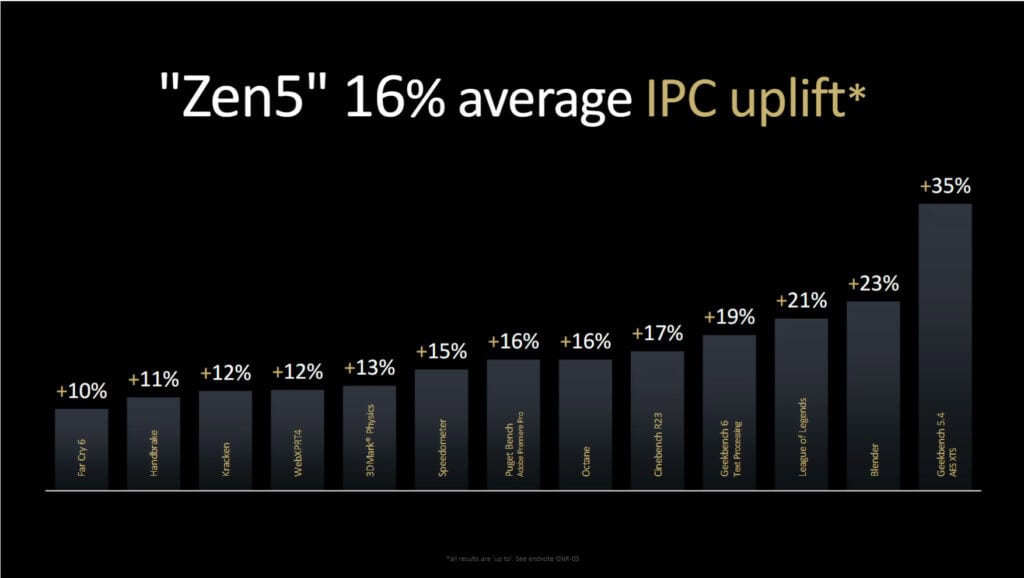
So, the 13900K has more muscle, while the 9950X is faster and more efficient. So, I think the edge goes to the 9950X, but that doesn't take anything away from Intel's 13th-generation champion. In our 13900K review, it has excellent in-game and single- and multi-core results, making it a beast for gaming and professional workflows alike.
Clock speed
The clock determines how fast a processor is and how many instructions it can execute in a second. The higher the clock speed, the better processing a CPU has.
The base clock speed of the 9950X is 4.3 GHz, while 13900K's E- and P-core are 2.2 and 3.0 GHz, respectively. This means it can execute 2.1 and 1.3 billion more instructions per second, which is a massive difference in output as all the cores of the 9950X are hyperthreaded.
As for the boost clock, the 13900K is 0.1 GHz faster, but the faster transistors of the 9950X might be able to make up for that difference. That said, both processors are excellent options for multi-threaded and server-level intense workflows.
Cache and TDP
The 9950X has a 64 MB L3 cache, while the 13900K has a 36 MB Smart cache, which is accessible by all the cores, reducing access time and improving processing speed and efficiency.
That said, 28 MB of extra cache means the 9950X can hold more frequently accessed data onboard for quick processing, and since it has a higher base clock speed, it should be more efficient in utilizing that than the 13900K.
On top of that, the Ryzen 9000 series received an upgrade to their L1 and L2 cache, making them faster by doubling the bandwidth. So, as far as the cache is concerned, the 9950X is the winner.
Regarding their power draw, the 13900K has a base TDP of 125W, which is much lower than the 9950X's 170W TDP, but under load, the 13900K runs really hot and has a TDP of 253W, which could potentially go even higher if you've overclocked it. We recommend using the best CPU cooler for 13900K to keep it cool and pair it with a power PSU like the Corsair RM750x.
Neither CPU is very energy-efficient, but the 13900K does have a comparatively lower base TDP than the 13900K. However, we don't think anyone with this processor would run it under casual load.
Graphic capabilities
These processors both come with integrated graphics. The Ryzen 9 9950X has AMD Radeon Graphics, most likely with the RDNA-3 architecture, while the i9-13900K has the Intel UHD Graphics 770.
This means that you can run your system without a discrete GPU and troubleshoot it if you think your GPU suddenly died on you. You should also be able to play retro and some modern games, like CS2, that aren't as graphically demanding, although you still might need to play at lower resolutions to get playable framerates.
In case you're looking to complete your high-end build, we recommend using the best GPU for Ryzen 9 9950X or 13900K. Leave nothing to the imagination, as your setup will be able to mow down even the most graphically demanding titles with these pairings.
9950X price estimation
As mentioned before, AMD has delayed the launch of the Ryzen 9000 series processors, and you'll have to wait till 15th August for them to be released, and then we'll know their launch price.
That said, as the launch day approaches, more price leaks have started to pop up. A Chinese retailer mentioned this processor for $499, while another leak claimed it was listed at $599 on Amazon and $649 on Newegg.
Keep in mind that these are leaks, so take these values with a pinch of salt. Prices are susceptible to change, and we could see very different prices at the last second. Thankfully, we're not far away from the release date, and we just have to wait a couple more days before we witness the glory of Zen 5.
How have these CPUs changed from the last generation?
| Specifications | 9950X | 7950X | 5950X |
| Cores | 16 | 16 | 16 |
| Threads | 32 | 32 | 32 |
| Cache | 64 MB | 64 MB | 64 MB |
| Max boost clock | 5.7 GHz | 5.7 GHz | 4.9 GHz |
| Base clock speed | 4.3 GHz | 4.5 GHz | 3.4 GHz |
| TDP | 170W | 170W | 105W |
| Architecture | Zen 5 | Zen 4 | Zen 3 |
We compared the 9950X with the 7950X and the 5950X, and the biggest difference between the three is that they are based on different architectures. All of them have the same core count, threads, and cache, but the 5950X has the lowest TPD of 105W, while the other two share the same 170W TDP.
The 9950X and 7950X share the 5.7 GHz max boost clock, while the 7950X has the highest base clock speed.
We compared the 13900K to its predecessors, the 12900K and 11900K.
| Specifications | 13900K | 12900K | 11900K |
| Cores | 24 | 16 | 10 |
| Threads | 32 | 24 | 16 |
| Cache | 36 MB | 30 MB | 20 MB |
| Max boost clock | 5.8 GHz | 5.2 GHz | 4.9 GHz |
| Base clock speed | E-core: 2.2 GHzP-core: 3.0 GHz | E-core: 2.4 GHzP-core: 3.2 GHz | E-core: 2.8 GHzP-core: 3.7 GHz |
| TDP | 125W / 253W | 125W / 241W | 125W / 150W |
| Architecture | Raptor Lake | Alder Lake | Rocket Lake |
The lower you go, the more hardware drops, meaning the 13900K has the most beefed-up specifications out of the three processors. It also has the highest TDP of 253W, compared to 12900K's and 11900K's 241W and 150W TDP, respectively.
The same pattern is seen for the boost clock speeds, but the biggest difference is their architecture: The 11900K has 14nm processes, while the other two have Intel 7 lithography.
Alternatives to the 9950X and the 13900K
There are some processors that you could opt for instead of the 9950X and the 13900K, and we've listed them below. We've reviewed some of these alternative options, and you can also check out their in-depth reviews.
9950X alternatives
-
AMD Ryzen 9 7950X
- Cores: 16
- Threads: 32
- Boost clock speed: 5.7 GHz
- Base clock speed: 4.5 GHz
- L3 Cache: 64 MB
- TDP: 170W
-
AMD Ryzen 9 7950X3D
- Cores: 16
- Thread: 32
- Base Clock Speed: 100 MHz
- Boost Clock Speed: 5.7 GHz
- L3 Cache: 128 MB (shared)
- TDP: 120 W
13900K alternatives
-
Intel Core i9-14900K
- Cores: 24 (8P-16E)
- Threads: 32
- Boost clock speed : P-Core 5.8GHz / E-Core 4.4GHz
- Base clock speed: P-Core 3.2GHz / E-Core 2.4GHz
- L3 Cache: 36 MB
- TDP: 253W
-
Intel Core i9-12900K
- Cores: 16-core (24 threads) (8P+8E)
- Base clock speed: 3.20 GHz (Performance); 2.40 GHz (Efficient)
- Boost clock speed: 5.20 GHz (Performance); 3.90 GHz (Efficient)
- Cache: 30MB
- TDP: 125W
- Max Turbo Power: 241W
Which one should you go for?
The quick answer to that question is to go for the processor for which you already have a platform. Neither CPU has bad performance, but the 9950X is based on the AM5 platform, which is supported till 2027, while the 13900K requires the LGA1700 socket, which the LGA1851 socket will replace, come Intel's 15th-generation processors.
Your upgrade path will end with the 14th-generation CPUs. That said, to run the 9950X, you'll need an AM5 motherboard, which also requires DDR5 RAM. There is a hefty initial cost, but this setup will last you a good while.
In terms of performance, the 9950X is the better option as it has a comparatively lower TDP and will be able to take advantage of the upcoming 800 motherboards. Regardless of the processor you choose, you won't be disappointed with the performance, whether in gaming or a professional setting.
As always, I talked to Seb Kozlowski, our friendly neighborhood tech enthusiast and hardware expert, about what he thinks of this almighty matchup, and this is what he had to say:
Looking to the top of the pack you may find both the Ryzen 9 9950X and i9-13900K. Although the latter one is a generation older, it might not be the the latest hardware you can go for, but to be fair the 14th Gen doesn’t improve it by that much. Even then these are certainly more productivity focused chips that bring plenty of cores with them that make them the top choice for multi-threaded processes. But in that aspect the Intel one usually wins over.
However, with the Intel instability problems and damage in these chips, you have to be wary of using them and ending up with a broken chip. Whilst AMD offers a good general stability and does so with a lower TDP that might be saving you money in the long term even if the upfront might be a bit tougher.
Seb Kozlowski



